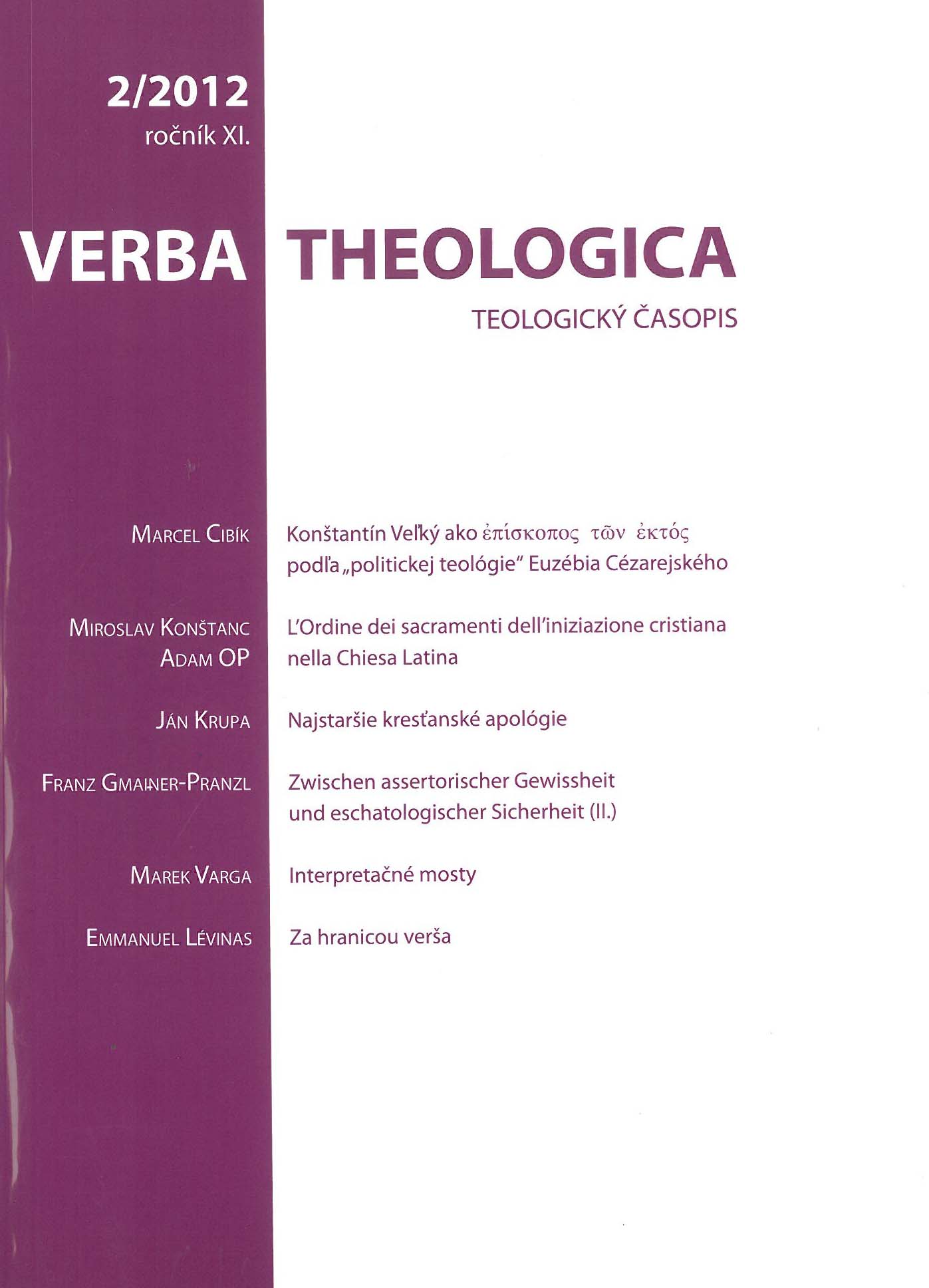Zwischen assertorischer Gewissheit und eschatologischer Sicherheit
Between Affirmative Certainty and Eschatological Conviction
Author(s): Franz Gmainer-PranzlSubject(s): Christian Theology and Religion, Theology and Religion, Analytic Philosophy, Philosophy of Language
Published by: VERBUM - vydavateľstvo Katolíckej univerzity v Ružomberku
Keywords: discourse of God; theological epistemology; analytic philosophy of language;
Summary/Abstract: The study The Religious Discourse of God (Munich 1981), conducted by Ingolf Ulrich Dalferth, still remains one of the most significant contributions to the linguistic-philosophical reflection of fundamental-theological questions. Dalferth, through a distinction between general linguistic-analytical aspects of „discourse“ and specific „religious“ aspects of discourse (of God), is confronted with the key question regarding the „intelligibility of the discourse of God“. Thus „religiosity“ is not a question of linguistic competence, but rather of a reference to a situation, which may be characterized as „God’s address“ and „man’s answer“. The experience of this „address“ (or „challenge“) creates the foundational situation of faith. In light of the challenge of speaking of „God“, Dalferth takes up the topos of „eschatological verification“ (John Hick). He does not interpret it as a „transitory hereafter“, but as a verification, which is possible only through God. According to Dalferth, the challenge of truth, as maintained by the Christian discourse of God, is philosophicallly possible, justified by witnessed experience of faith, and, in terms of eschatological verification, well-founded.
Journal: Verba Theologica
- Issue Year: XI/2012
- Issue No: 2
- Page Range: 59-76
- Page Count: 18
- Language: German

